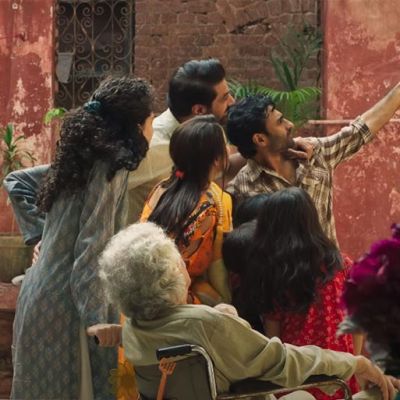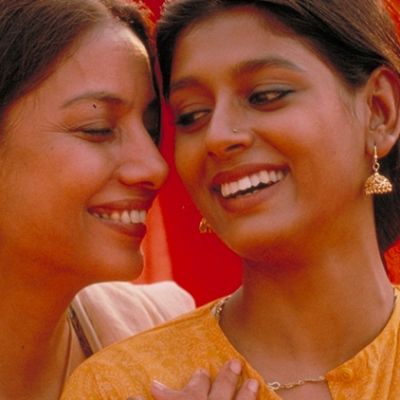popular culture
Directed by Saim Sadiq, Joyland (2022) is not a film about trans rights or women’s rights. It is not even about one specific group or community of people. It is about the whole spectrum of human emotions.
As a girl, I was made to believe that pleasure was something that existed outside my body, something that I had to seek out, something that was necessarily a product of a partnered experience. I don’t think I was even allowed to want pleasure, especially in its sexual forms.
Both rejections and affirmations of the couple are skewered on this doubleness: It is the fullest expression of love and proximity available to us, and it bears all the insufficiencies of present social relations. Monogamous romantic commitment, like infallible lifelong attraction to only men or only women, is surely a minority tendency expediently elevated to a general social principle.
Members of a fandom are not just passive consumers but active co-creators who imagine and build new worlds around their objects of adoration. Fandom communities offer fans the freedom of being able to imagine, create and share all sorts of scenarios, including romantic, erotic and sexual ones.
Singleness represents eschewing all that patriarchy imposes on us in the name of emotional and financial protection. Women who decide not to marry defy age-old ‘wisdom’ mixed with terrible psychological and biologically-backed explanations.
The social value of the platonic relationship needs to be restated: Too many boys today grow up with the idea that their relations with women (who are not their mothers and/or sisters) are confined to an oversexualised romantic bubble.
And so, in the mid-month issue we have Shweta Krishnan examining the place of political incorrectness in stand-up comedy, Rohini Banerjee talking about how fanfiction allowed her to delve into alternative worlds, and…
Somewhere in the middle of Nanette, as I was crying and laughing, I thought about how political incorrectness is the soul of stand-up comedy.
Fanfiction was more than just writing your own stories about the characters or the setting of your favourite book or TV show; it was a questioning of the dominant mainstream pop culture narrative as a whole.
When Deepa Mehta’s Fire came out in 1996, violent protests roiled India over the depiction of romance between two female leads. There is no homosexuality in India, demonstrators declared while burning effigies in the Capital. In contrast, when Margarita With A Straw came out in 2014, it received accolades for its sensitive portrayal of queer desire in a woman with disability.
Even in a country obsessed with anime, Kondo’s wedding shocked many. But he wants to be recognised as a “sexual minority” who can’t imagine dating a flesh-and-blood woman.
“अगर आप उसपर हँस सकते हैं तो सब कुछ मज़ाकिया है।” – लुईस कैरोल लुईस कैरोल को अधिकार-आधारित परिप्रेक्ष्य वाला…
While we’ve grown used to hearing porn blamed for society’s ills, it’s now the medium’s comparatively matronly cousin – romance novels – that have come under scrutiny.
एक अलग जेंडर के शरीर के लिए मेरी इच्छा निरंतर और बेदर्द नहीं थी। ये तेज लहर सी होती और हमेशा मुझे उस शरीर के साथ काफ़ी संतुष्ट छोड़ जाती जो मेरे पास था। बृहन्नला का अवतार उस प्रकार की अस्थायी और पलटने योग्य संभावना के लिए एक संदर्भ बिंदु या आदर्श रूप बन गया।
Any narrative that we construct, any single word that we use to describe a person, a relationship, an individual is bound to be incomplete.















